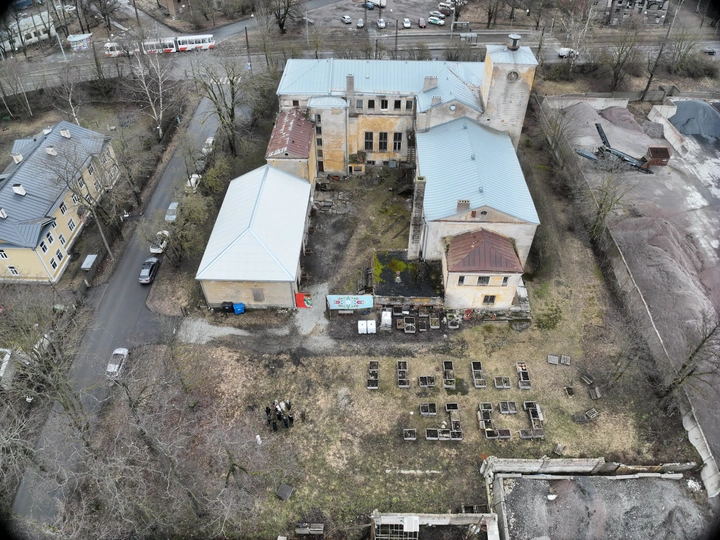Meanwhile in Kopli 93

Iiris Tähti Toom
Spatialist Studio was founded by Iiris Tähti Toom and Henri Kopra as a continuation of their MPhil Architecture degree research at the University of Cambridge. In combining processes of research and design, the Studio aims to circumvent the common pitfalls of prevalent public procurement patterns, where limited analyses and misguided briefs routinely fall short of societal and ecological needs. Working primarily through self-initiated projects stemming from community outreach, the Studio conducts architectural-anthropological studies, often in collaboration with local universities, NGOs, and municipalities, to pinpoint problems and offer solutions -- the answer to which is rarely architecture alone.
Helping such endeavours secure independent funding allows work to be undertaken, which might otherwise be deemed too burdensome or previously untested. The resultant projects therefore aim to create not only new public spaces, but also new spatial cultures. Current live projects include a pavilion testing the potential of eelgrass as a cladding material, a publication on post-Soviet spatial politics through the lens of urban gardening, and the redevelopment of a grade listed community centre in both its physical form and cultural program.
Located on the eponymous peninsula in Northern Tallinn, the Kopli Community Centre has remained abandoned since the 1990s, with the exception of a Soviet-era outbuilding, partially converted into a free public Makerspace in 2022. Despite recent rapid development and rampant gentrification, the area continues to lack versatility in its free public provision.
Funded and operated by the City of Tallinn, the Community Centre thus has the potential to act as a social bastion mediating the area’s rapid demographic changes, as well as to incorporate novel meanwhile-use strategies into the city’s public placemaking portfolio. The proposal is centred around the south-facing public courtyard, which connects all wings of the Makerspace and main building, and acts as the spill-out zone, amplifier, and mediator between all wings’ eventual individual programs.
The project seeks to not only to create a new public space, but also a new spatial culture — one in which citizens are not only passive consumers of ready made spaces, but active participants in new ones’ creation. To this end, part of the scheme is delivered through volunteer labour, reviving the archaic format of 'talgud’ — an Estonian tradition of communal work parties, akin to American barn raising. The project aims to build upon this model, using co-building as a vector for public consultation and community activation.
Alongside planning processes, the design also interrogates current industrial ecosystems. Using a recycled material palette harvested from the city’s demolition sites and recycling centres, the design aims to showcase that low-carbon and low-cost do not equal low quality. Normalising the aesthetics of this nascent circularity, the project will arm residents with practical knowledge of their use through processes of collective construction. With ground broken in May, the project is expected to be completed by August 2024.